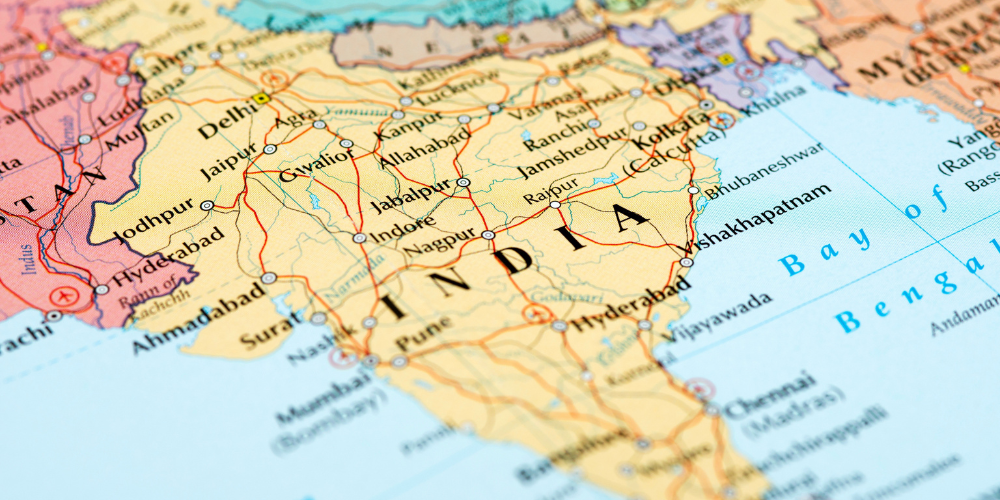UAE & India CEPA: New Push for Indian Startups' Success

The start-up ecosystem in India is thriving. With innovation at its core and global ambitions in sight, Indian entrepreneurs are looking beyond borders. One significant development is the UAE–India Comprehensive Economic Partnership Agreement (CEPA).
Signed in 2022, this landmark trade deal goes beyond just cutting tariffs. It’s changing the game for how Indian startups grow, connect, and go global.
In this blog, we take a closer look at how CEPA is opening new doors for Indian entrepreneurs by making it easier to access capital, navigate regulations, and tap into wider markets.
A Strategic Gateway Opens
The UAE has long been a hub of trade, finance, and logistics. With CEPA in place, Indian startups now have easier access to this ecosystem. More than a regional market, the UAE offers a launchpad to the Gulf, Africa, and beyond.
Startups can test products in a digitally savvy environment, work with diverse customer bases, and plug into one of the world’s most efficient infrastructure networks. Whether it’s a SaaS solution or a health-tech innovation, scaling across borders just got easier.
Capital, Talent, and Everything Between
For any start-up, access to funding and people is the fuel for growth. One of the most significant outcomes of CEPA is the improved financial and professional mobility between the two nations.
Startups can now access UAE-based venture capital with far fewer restrictions. Banking becomes simpler, and cross-border funding no longer faces the same bureaucratic hurdles.
Investors from the UAE, including sovereign wealth funds and family offices, are showing strong interest in Indian ventures. Now, they are investing with growing confidence.
On the talent front, CEPA promotes smoother mobility of professionals.Indian founders and skilled team members can now get long-term visas more easily. They can team up with UAE-based companies and even base part of their operations in the Emirates.
The agreement also makes it simpler to get professional qualifications recognized, which helps cut down the hassle in hiring and deploying talent.
The Digital Advantage
One of the most exciting parts of CEPA is its focus on digital trade and innovation. As digital platforms change how business works globally, this agreement encourages cooperation on data flow and technology.
CEPA promotes easier cross-border data movement, but it doesn’t legally stop either country from requiring data localisation. All data rules still depend on national laws.
For Indian startups in fintech, AI, cybersecurity, and SaaS, this means more chances to enter the UAE market without duplicating infrastructure or losing control over data. But there are no hard guarantees.
The deal also supports joint innovation like R&D and regulatory sandboxes. It highlights sectors such as clean energy, health-tech, and logistics. These commitments are not legally binding but show a real desire to collaborate. Indian startups can now work closely with UAE partners to build new solutions.
Although digital trade lacks formal dispute resolution, CEPA establishes a foundation for future collaboration and development in the digital realm.
Cultural Bridges and Business Trust
What makes this partnership even more powerful is the longstanding cultural and business relationship between India and the UAE. The Indian diaspora in the Emirates is large and has a significant economic impact.
This diaspora creates a natural support system for Indian founders entering the UAE market. From mentorship and local knowledge to investment connections and early clients, Indian entrepreneurs often find a warm welcome.
Business councils, tech hubs, and entrepreneurship events throughout the UAE often feature Indian startups and actively encourage collaboration.
What Indian Startups Should Do Now
To make the most of CEPA, startups must act proactively:
- Understand CEPA provisions. Study regulatory, financial, and customs guidelines relevant to their sector.
- Engage with UAE agencies such as Dubai FTA, Abu Dhabi Global Market (ADGM), DIFC innovation teams, and telecom regulators.
- Take part in accelerators in UAE free zones like Dubai Internet City and Sharjah Research Technology and Innovation Park.
- Network strategically at events like GITEX Global and RiseUP Dubai. Connect with groups like the UAE-India Business Council.
- Explore regulatory sandbox opportunities early. Secure pilot licensing in fintech, med-tech, and cleantech.
- Focus on IP cross-recognition. File patents or design rights in both countries.
- Structure banking and capital flows. Work with compliant financial entities that support CEPA-enabled movements.
Ready to Scale Your Indian Startup in the UAE? We’ve Got You Covered
From understanding new market opportunities to navigating visa rules, data policies, and innovation partnerships, the path to success under CEPA can be complex.
At 10xM, we specialize in guiding Indian startups through every step of expanding into the UAE. Whether it’s setting up operations, accessing capital, or building tech collaborations, our experts make sure you’re ready to seize the moment with confidence.
Don’t miss out on CEPA’s potential for your start-up. Book a free consultation today and take your business further, faster.




